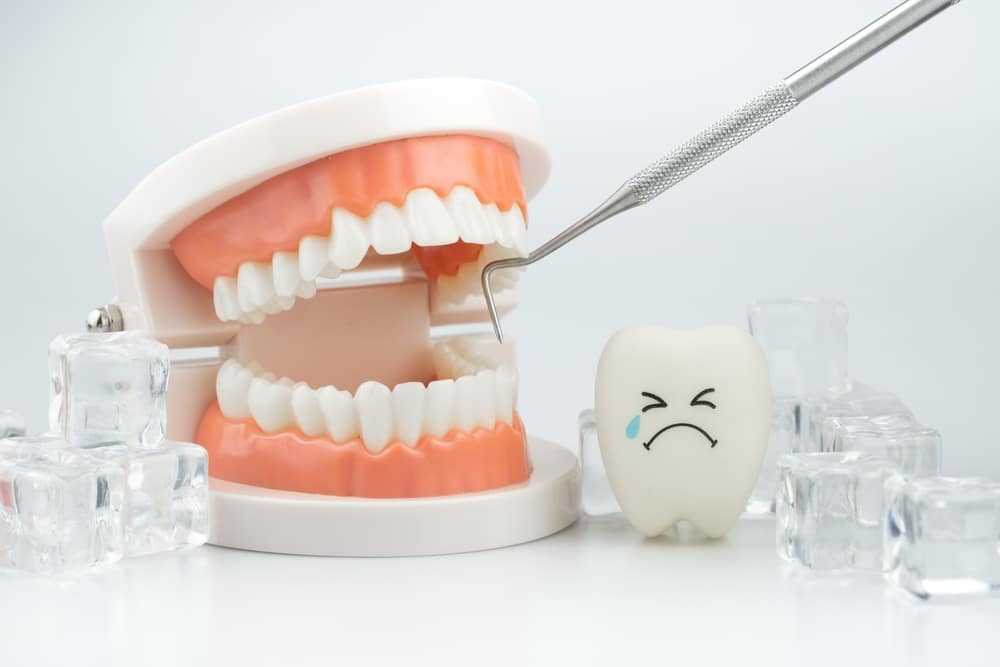
Medical conditions present significant challenges to the reliability and accuracy of DUI chemical testing, creating important defense opportunities in DUI cases. These conditions can affect both chemical test results and field sobriety testing, often mimicking intoxication symptoms or interfering with testing procedures. Understanding these medical defenses requires careful examination of scientific principles and their interaction with various testing methodologies.
Subject control begins with the officer establishing a commanding presence through professional demeanor and clear, authoritative communication. Officers maintain awareness of their physical positioning relative to the subject, keeping appropriate distance while remaining ready to respond to any resistance. This positioning also considers environmental factors such as traffic, terrain, and potential obstacles. Throughout the interaction, officers must continuously assess the subject’s level of compliance and document any resistance encountered, including verbal non-compliance or physical resistance.

Blood sugar fluctuations in diabetic individuals can produce behavioral symptoms remarkably similar to alcohol intoxication, creating significant challenges for field sobriety testing. High or low blood sugar levels can affect balance, coordination, and cognitive function, potentially leading to failed field sobriety tests even in completely sober individuals. Proper documentation of these blood sugar impacts requires careful medical record collection and expert analysis.
Establishing diabetes-related defenses requires comprehensive medical documentation, including detailed treatment records and historical medical evidence. Expert testimony must establish the connection between the medical condition and its effects on testing reliability. Historical medical evidence helps demonstrate the ongoing nature of the condition and its potential impact on testing results.
Gastroesophageal Reflux Disease (GERD) significantly impacts breath testing reliability through potential mouth alcohol contamination. The condition can cause alcohol from the stomach to reflux into the mouth, creating artificially high readings on breath testing equipment. Scientific principles underlying this interference must be carefully documented and explained through expert testimony.
GERD-related legal challenges focus on observation period adequacy and scientific reliability issues. Standard observation periods may prove insufficient for GERD sufferers, while scientific reliability questions arise regarding the ability to distinguish mouth alcohol from deep lung air samples. Alternative testing requirements may become necessary to ensure accurate results.

Establishing GERD-related defenses requires thorough medical documentation, including formal diagnosis records and detailed treatment history. Symptom documentation must demonstrate the condition’s potential impact on testing procedures, while expert testimony helps establish the scientific basis for challenging test results. This documentation forms the foundation for challenging test reliability and seeking alternative testing methods.
The intersection of medical conditions and DUI testing creates complex scientific and legal issues requiring careful analysis and presentation. Success in presenting medical defenses often depends on thorough documentation, expert testimony, and clear explanation of scientific principles underlying these challenges. Each medical condition presents unique challenges and opportunities for defending against DUI charges based on potentially unreliable test results.
Understanding these medical defenses requires a comprehensive approach incorporating medical expertise, scientific knowledge, and legal strategy. Proper documentation and expert testimony prove crucial in establishing the validity of medical defenses and their impact on testing reliability. Each aspect of the defense must be carefully developed and presented to create a compelling challenge to test results.
Respiratory conditions, particularly asthma and COPD, present significant challenges to breath testing reliability in DUI cases. These conditions affect breath volume and pattern, potentially preventing subjects from providing sufficient breath samples for accurate testing. The scientific challenges include understanding how these conditions affect breathing mechanics and their impact on breath alcohol measurement accuracy.
Sleep apnea introduces additional complications, as its symptoms can mimic alcohol impairment. The condition affects balance, coordination, and cognitive function, potentially leading to failed field sobriety tests independent of alcohol consumption. Other respiratory issues create similar challenges through their effects on breathing patterns and test result validity, requiring careful medical documentation and expert analysis.
Balance disorders present particular challenges in DUI cases, as they directly affect performance on standardized field sobriety tests. These conditions provide alternative explanations for poor test performance, requiring thorough medical evidence to establish their impact. Movement disorders similarly interfere with both field sobriety testing and chemical test administration, necessitating careful documentation through behavioral observations and expert testimony.
Documentation requirements for neurological conditions demand comprehensive medical records establishing diagnosis, treatment history, and expert opinions regarding their impact on testing. These records must demonstrate both the existence of the condition and its specific effects on various testing methods. Expert testimony proves crucial in explaining how these conditions affect test performance and reliability.
Auto-brewery syndrome presents a unique challenge in DUI cases through its ability to produce endogenous alcohol without consumption. This rare condition results in measurable blood alcohol levels through internal fermentation processes, supported by scientific research evidence. The condition’s complexity requires careful documentation and expert testimony to establish its presence and effects.
Testing challenges associated with auto-brewery syndrome affect both blood and breath testing accuracy. The condition raises questions about result reliability and interpretation, often requiring alternative testing methods to distinguish between consumed and endogenously produced alcohol. Legal strategies must incorporate expert testimony, comprehensive medical documentation, and scientific evidence to establish the condition’s impact on test results.
The defense of DUI cases involving these medical conditions requires a thorough understanding of their scientific principles and effects on testing. Success often depends on comprehensive medical documentation, expert testimony, and clear presentation of scientific evidence. Each condition presents unique challenges requiring specific approaches to challenging test reliability and validity.
These medical defenses highlight the importance of considering underlying health conditions when evaluating DUI test results. Proper documentation, expert analysis, and scientific understanding prove crucial in presenting effective challenges based on these medical conditions. The complexity of these cases often requires a multi-faceted approach incorporating medical, scientific, and legal expertise.
Dental conditions present unique challenges in breath testing accuracy, with issues ranging from trapped alcohol in dental work to complications from bridges and dentures. These dental structures can retain alcohol, creating artificially high readings during breath testing. Legal challenges to breath testing protocols must address these dental concerns through scientific evidence and expert testimony regarding their impact on test reliability.
Documentation and expert testimony requirements span multiple disciplines, requiring coordination between dental experts, medical professionals, and testing specialists. Medical experts must establish qualifications and provide scientifically-based opinions regarding how specific conditions affect testing. Testing experts need to demonstrate technical knowledge of equipment operation and protocol requirements, while documentation experts interpret records and assess compliance with standard procedures.

Effective legal strategies begin with pre-trial motions addressing suppression grounds and scientific reliability issues. Trial presentation must focus on educating jurors about complex medical and technical issues through expert testimony and clear evidence presentation. Negotiation approaches leverage medical documentation and scientific challenges to support alternative explanations for test results.
Case preparation requires comprehensive medical investigation, including thorough record collection and expert consultation. Testing analysis must review protocols and medical impacts while developing alternative explanations. Defense strategy selection coordinates expert testimony and evidence presentation to create compelling challenges to test reliability.
Documentation requirements encompass medical records, testing records, and expert reports, each serving specific purposes in challenging test reliability. Medical records must establish historical treatment and current diagnosis, while testing records demonstrate protocol compliance and any medical accommodations made. Expert reports provide scientific basis and literature support for challenging testing limitations.
Practice Tips for Success:
Success in presenting medical defenses requires early attention to documentation collection and expert consultation. Strategic planning must address evidence preservation, testing challenge selection, and comprehensive trial preparation. The timing of expert consultation and coordination of multiple experts often proves crucial to effective presentation of medical defenses.
Effective presentation of medical defenses in DUI cases requires a comprehensive approach incorporating medical documentation, expert testimony, and strategic planning. Success depends on careful coordination of multiple experts, thorough documentation, and clear presentation of complex scientific principles. Understanding the interplay between medical conditions, testing limitations, and legal requirements proves essential in developing effective challenges to test reliability.
The complexity of medical defenses demands careful attention to detail in all aspects of case preparation and presentation. Early identification of potential medical issues, thorough documentation collection, and strategic expert consultation form the foundation for successful challenges. Each case requires individualized analysis to identify the most effective combination of medical, scientific, and legal challenges to test reliability.
At DUI 101, our mission is to empower you with the knowledge needed to make informed decisions during this challenging time. Explore our articles and guides to better understand your situation and the steps ahead.
© 2024 Chapman SEO LLC. This website is for educational and informational purposes only. All content is created using AI technology and maintained by non-lawyers and should not be considered legal advice. The information provided is general in nature and may not be suitable for your specific situation. Always consult with a qualified legal professional for advice regarding your individual circumstances. We do not create attorney-client relationships through this website. By using this site, you acknowledge that you have read and understand these terms.